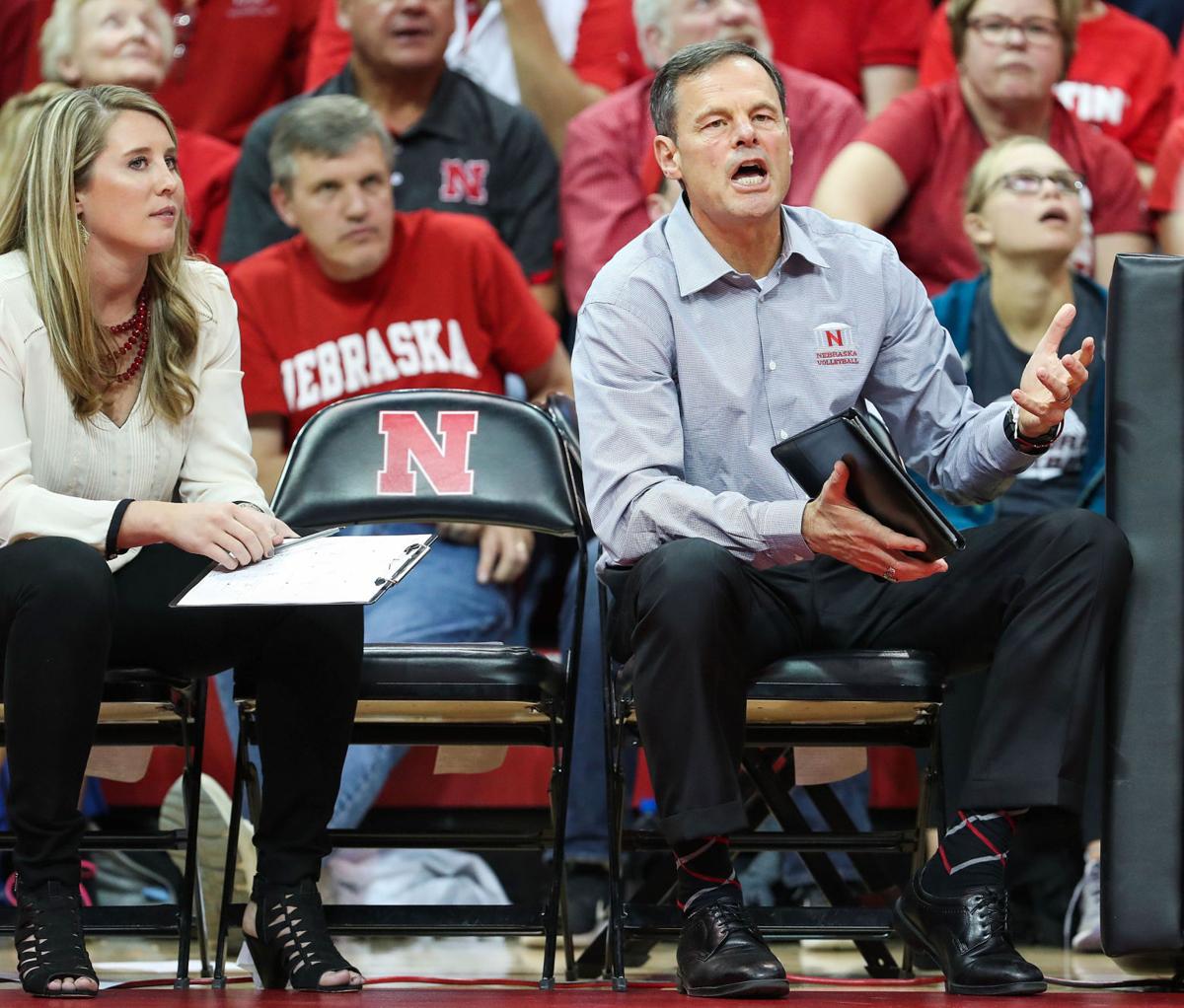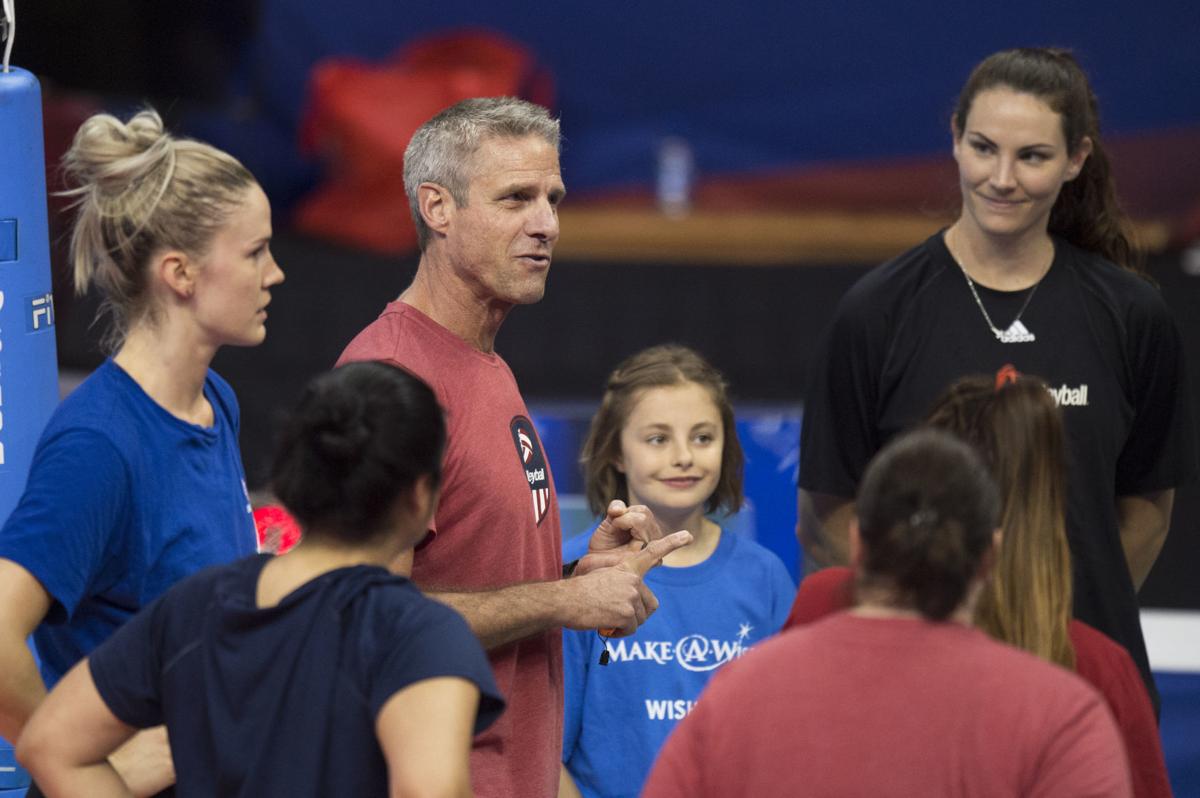By John O'Sullivan
March 21, 2018
USA volleyball coach Karch Kiraly (center) talks with the team during practice May 14, 2018 at the Devaney Sports Center. (Kayla Wolf/Lincoln Journal Star)
“It ain’t what you know that gets you in trouble. It’s what you know that just ain’t true.” – Mark Twain
“What makes you a professional?”
That was the question Dr. Richard Bailey, Head of Research at the International Council of Sport Science and Physical Education, posed to me and 250 PGA instructors in Orlando this past January at the PGA Youth and Global Summit.
“Does getting paid to do something make you a professional? I don’t think so,” he continued, as he displayed the image above.
“Does belonging to a professional association of coaches or instructors make you a professional?” he asked. “Can’t we do better than that? Don’t we expect more of our professional doctors and lawyers and accountants than to simply be paid for their work or belong to a trade association?”
“No, being a professional is much more. It means seeking a standard of excellence, constantly improving and incorporating the best knowledge and research in your field in order to get better at what you do every single day. That is what it means to be a professional.”
A lot of heads were nodding in the crowd.
“Then we better get to work,” said Bailey, “because when it comes to coaching across the globe, there are far too many coaches who want to be considered professionals in their field, but have no intention of improving themselves or seeking a standard of excellence. They want to be treated like professionals but have no intention of acting like one. This is what we need to change.”
I am a coach. For the past twenty plus years, coaching has been my profession. Yet for far too long, I didn’t act professionally. I got paid. I joined associations. I took my certifications and licenses. But I didn’t look beyond those things. I didn’t seek out more. I blamed my players for not learning, instead of myself for not properly teaching. And then something remarkable happened.
I had my own children. I realized for the first time in my life that there was something more important than myself. I realized the tremendous trust and responsibility that was placed with me by parents who turned over the physical and emotional well-being of their children to me.
I realized I was letting too many of those kids down. It was time for me to become a true professional coach and not simply a coach who got paid. It changed me forever as a coach. It did not make me perfect – far from it – but every day I try and get better. How?
I think about what I missed at practice today.
When players do not learn something, I look first to where I failed as a teacher before I blame the students.
I look for more effective ways to teach.
I try and be a better listener.
I surround myself with coaches who challenge me and critique how I work.
I read books and research on a daily basis.
Do you?
Our goal at the Changing the Game Project is for all coaches to become more professional in our work. That does not mean we all will get paid, but it does mean they get trained and held to a higher standard. Our work is too important.
This article is for those of us who do get paid. This is for coaches who take a paycheck and work with kids and young adults, either on a full-time or part-time basis. Because I look around and I see a lot of non-professionals out there, and you are doing our profession a huge disservice. You are giving us a bad name. You refuse to attend certification or licensing, and never pick up a book or go watch a true master coach at work. Some of you are scaring families and children into accepting everything you say and do, a deity who controls their playing time, their participation, and their future, promising scholarships and “playing at the next level” without even understanding what that means, or caring how many eggs you break in order to find one that does not crack.
We need a higher standard. Parents must demand it. Good coaches must demand it. Athletes must demand it. And administrators must demand it. So what does that standard look like?
- What are we doing now that we need to KEEP doing if we want to be successful in the future?
- What do we need to STOP doing that we are doing now if we want to be successful in the future?
These questions seem quite appropriate here. What do we need to keep doing, and what do we need to stop doing, if we want coaching to be a profession?
Click on the link below to read the rest of the article.







/cdn.vox-cdn.com/uploads/chorus_asset/file/9871553/johncookhisres.jpg)


